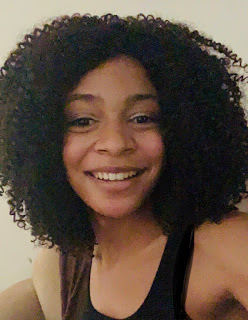An African student at the University of Iowa cut all of her hair off, because nobody could braid her natural hair. A black freshman relies on her mom to drive eight hours round-trip in order to get her hair done. A mixed, queer fourth-year shoves his earphones so far down his auditory canal it rattles his eardrum just to avoid the judgment from other black men in a barbershop.
They tell me this is what it feels like to be a stranger in the place they call home for now.
While their experiences are different, they tell me they want much of the same things: a space in Iowa City that welcomes black people, people of color, and Africans alike in an inclusive space that will service them without judgment. They want to be able to care for themselves, their hair, and not feel afraid—afraid in the sense that they don’t want to be a nuisance, afraid to speak up for what they want or need and be judged as a result, afraid to sit down and trust their hair with a complete stranger that is unqualified, afraid to walk into their classroom or job and be criticized as unprofessional and ghetto.
“After a while, I just decided to cut my hair off because it was just too much of a hassle to go on and find someone who can do that,” Fatoumatra Traore, a junior studying public health, said.
Traore grew up in Mali, a West African country twice the size of Texas, but she has citizenship here in the states since she was born in the states and lived in Des Moines. It’s ironic that her parents pushed her to go to school in the Midwest, telling her she would get more opportunities here, when Fatou was pushed to the point of cutting the majority of her hair off since Iowa lacked accessibility to hair care products and skilled hairdressers she needed. She followed that up by perming her hair straight to escape problems with general hair care and service.

Traore’s ink black 4C curls, tightly wound and too coarse to parse through with a traditional paddle brush, were hidden from passerby under an eccentric gray scarf, bedazzled with plastic flatback rhinestones. Covered for her Islamic faith, she said it’s a relief to shield her coarse coils from the touch of not only her own hands, but those of professional hairdressers who lack the knowledge and skill to perform African braids upon her scalp and charge outrageous prices for simple styles.
In Mali, Traore could go down the street to a neighbor or cousin’s house pay them $1 for African braids. She would get them done every two weeks. In Iowa, she chopped her hair to the scalp to avoid paying $60 for a subpar braid style that caused her embarrassment to walk around with. On top of AWOL hairdressers and salons that can perform the hairstyle she needs to protect her fragile coils, Traore brought most of the hair products she needs from Africa, because Iowa doesn’t provide what she needs to simply maintain a part of her body.

Lack of accessibility to hair care products and salon service doesn’t just affect Traore—it affects other people of color like University of Iowa freshman Lauren Mason who studies computer science and engineering. A black woman from Romeoville, a southwest Chicago suburb, Mason struggles to find adequate accessibility to specific hair care products and hairdresser service in Iowa City for her 4B hair type. Wiry and fragile, Mason’s hair requires delicate maintenance and a plethora of creams and oil solutions to protect her z-shaped curls.
“I struggle mostly with maintenance,” Mason said. “You can try to go to a salon around here. But they don’t know how to take care of your hair. And you don’t want to have them mess it up—I grew [my hair] out for how long? I ain’t having my hair messed up.”
Mason wears a crochet wig in the meantime, going home once a month to get her hair done. All her trips home are planned for the pure purpose of getting hair care products and meeting with her hairdresser to ensure her hair is properly taken care of. The round-trip amounts to eight hours of travel by car, but it’s a necessity for her because the resources in Iowa City are slim to none, with the occasional exception of CVS Pharmacy carrying the conditioner she uses.
When she walks into Target hoping they have what she needs, she’s always struck by how “Other” she is. The company has a small section, usually at the end of the aisle with one shelf, labeled “Ethnic Hair Care.” When she looks to the right, she sees the two aisles full of the hair care products that aren’t identified as “Ethnic” but just “Hair Care” for white people. It’s a slap in the face that reminds her just how different she is from the majority of people in the Midwest.
Over the summer, Mason tried walking into a traditional hair salon in Wal-Mart, one that doesn’t cater to black clients, to get her hair done. When she approached one of the free hairdressers, a white woman, they pointed her to the only other black person in the salon without saying anything, dismissing her and handing her off as a problem to someone else who could deal with her.
“I did it once,” Mason said. “I will never do it again.”
Her experience echoes that of a mixed, queer student named Philip Runia, a senior at the university studying journalism and art. The light catches a bald spot in his fade, the chestnut curlicues atop his head swirling as though a calligraphy pen styled them. It’s from his childhood. His white mother tried to do his hair as a kid and ended up giving him a bald spot that never grew back from possible damage to the follicles, forcing him to wear a buzz cut from elementary school to his sophomore year of college. He sipped on a chai as he told me about the incommodious nature of barber shops in Iowa City and the general Midwest.

“Whenever I go to a barber shop, I kid you not, they’re always talking about like girls and p*ssies,” Runia said. “And so, every time I go there, I just put my headphones in, and I always subconsciously deepen my voice and start mumbling. I’m so quiet there, because I don’t feel accepted.”
It’s a multiplicity thing. Runia struggles in that space not only as a mixed person, but a queer person. He hears people code switch when they talk to him—using their “white voice.”
And it hurts him, because he wishes they didn’t think they had to do that. It makes him an outsider inside of his own community, feeling like a stranger inside the place he calls home.

